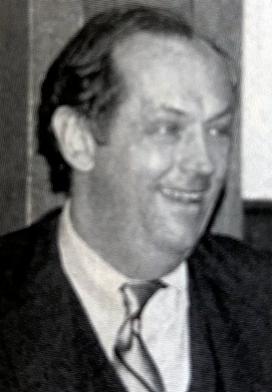Bill Bradley ’65 Rethinks Leadership and Service

After his term as a senator expires, Bill Bradley ’65 plans to work on campaign-finance reform.
Although he was an hour late because of a heavy snow storm, New Jersey Senator Bill Bradley ’65 made it to Princeton on February 16 to talk about leadership in American and to promote his new book, Time Present, Time Past (Alfred A. Knopf), in McCosh 50. Throughout his speech, “Rethinking America’s Leadership,” Bradley kept reiterating his vision for the United States as a “pluralistic democracy with a growing economy that takes everybody, not just the privileged few, but everybody to the higher ground.” America needs to do a lot to realize this goal, said Bradley.
Politicians, he said, have to avoid “political speak” and instead must talk to “real people…particularly those who are in economic stress.” The media has to do more than stoop to “the lowest common denominator” and become less invasive in covering the private lives of politicians. And people, he added, “have to get off the sofa and stop looking at politics as a spectator sport in which they are entertained, and get involved.”
Although he’s leaving the Senate after 18 years representing New Jersey, Bradley said he’s not giving up public life. He plans to work on campaign-finance reform, which he believes can’t happen in Washington. He also wants to address wage stagnation in the middle class. Part of the solution, he said, lies in creating enough jobs for those workers who are displaced as a result of new information technology.
Bradley called public service “a noble profession, notwithstanding the problems it has today,” and the life of a U.S. senator “tremendously fulfilling.” He urged students to consider public service as a career. “Politics,” he said, “is the only way we can reconcile great differences and move our collective humanity one inch forward.” In addition to public service and politics, he added, “it’s important to excel at being human,” by which he meant giving other people a part of one’s life.
“Leadership,” said Bradley, “isn’t something done to you … It’s what unlocks the potential of every citizen” and “calls people to task.” A good leader, he added, can alter the national self perception of what’s possible.
This was originally published in the March 20, 1996, issue of PAW.











No responses yet